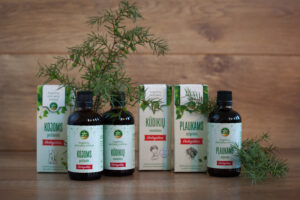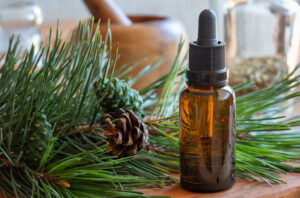What is the difference between “flower/floral waters” and “hydrosols/hydrolates”?
Although many sellers use the terms ‘flower water’ and ‘hydrosol’ or ‘hydrolat’ as synonyms on their websites , one should not be fooled into making a false choice, as they are in fact not the same thing.
Although there is overlap in these categories, there are some flower waters that are not hydrosols and hydrolates, and even some that should not really be called flower waters. So how can we tell the difference?
What is flower/floral water?
Floral water is simply “water” with a floral aroma. And they are produced in the following ways.
- Created by mixing water with essential oils or absolutes. As essential oils are insoluble in water, various emulsifiers, preservatives, odour enhancers and other stability-maintaining agents are usually added.
- Simple flower waters can be made at home by soaking the blossoms in water, for example by infusion, as in the preparation of herbal teas. Unfortunately, herbal infusions, if they do not contain essential oils, go off very quickly, just like any tea.
It is theoretically possible to produce good quality flower water by home distillation, but it still requires the right equipment and experience. Most of the time, these tests end up with boiling water being collected because the essential oils simply evaporate faster than the distillate cools.
What are hydlates or hydrosols?
Hydrolates (hydrosols) are only produced by the steam distillation process used to produce essential oils. Essential oils are insoluble in water, so they settle on the surface as the distillate cools and separate, like cream from milk. However, a small amount of about 0.01 – 0.1% of the essential oil remains in the distillate and together with the hydrophilic (water-soluble) components form a stable suspension – a hydrate or hydrosol.
This means that there are hydlates, such as juniper(Juniperus communis.) and cedar(Cedrus atlantica Manet) and other trees that are not flower baths, although they are sometimes classified as such .
However, the hydrolates extracted from the blossom of the bitter orange tree(Citrus bigaradia Risso, C. aurantium L) can quite reasonably be called flower water, both because of its scent and because of the origin of the raw material.
However, it would not be appropriate to refer to an aqueous extract of an herb such as Plantago major as either flower water or a hydrolat, which does not contain the essential oil that gives both flower water and hydrolat their respective scents.
Hydrosols and floral waters extracted by steam distillation are incredibly versatile, have a high aromatherapeutic value and are safe to use for children, pregnant women, the elderly and even many of our pets. They can be used undiluted or diluted.
- Use the hydrolats as a spray to moisturise and refresh the body against dry and hot weather.
- Enrich with hydrolats.
- Use hydrolats in place of facial toners, to wash your face, remove make-up residue, disinfect your skin after shaving.
- Use for hair rinses, shampoos or other cosmetic products containing water.
Produced by MĖTA UAB In birch and pine hydrolats, qualitative analysis by hs-spme-gc-tofms (headspace – solid phase microextraction- gas chromatography with time-of-flight mass spectrometry) identified more than 50 biologically active substances, such as hexanol, 3Z-hexenol, 3E-hexenol, 1.8-cineol, methyl salicylate, etc, which not only give the hydrolats the distinctive fresh aroma of birch leaves, buds and pine needles, but also the cosmetic functions of softening, breathing, masking, protecting, etc. to maintain the skin’s well-being.
Hydrolates containing some essential oil remain stable for 0.5 – 1.5 years.





